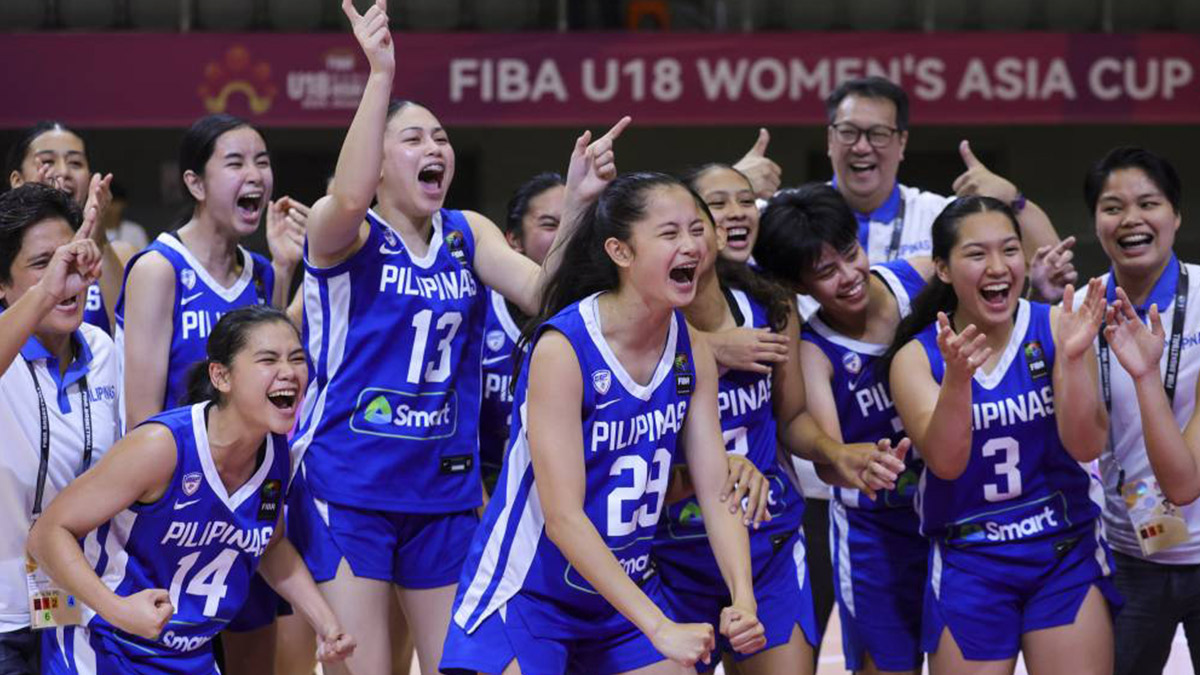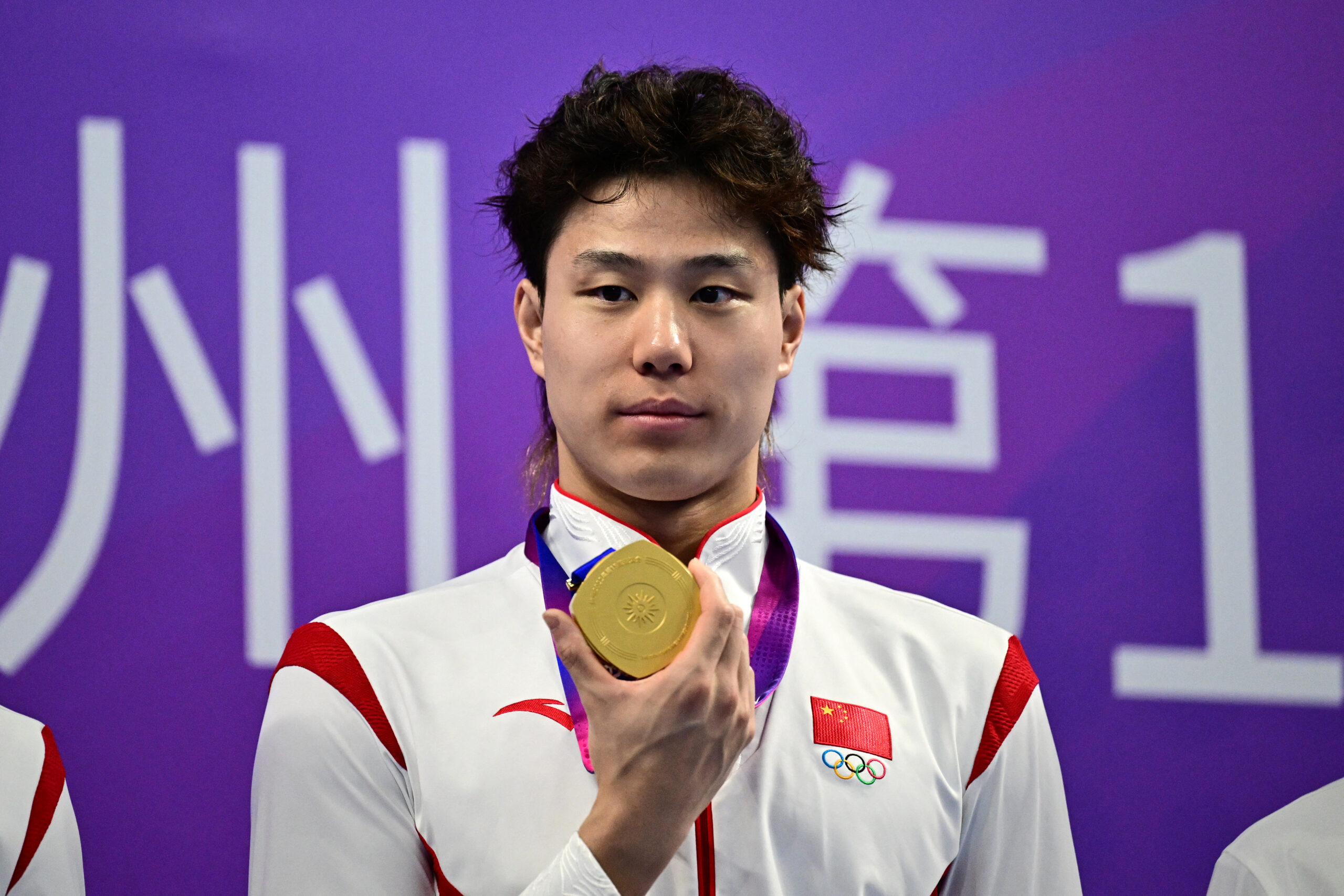The Gilas girls, with program director Pat Aquino (second from right), erupt in celebration as the final buzzer sounds. —FIBA ASIA PHOTO
The Gilas Pilipinas crew crushed one foe after another on its way to the Fiba U18 Asia Cup for Women’s finale, but on the eve of its most important game, national coach Julie Amos assured everyone that this band of hard-fighting girls still has another gear in it.
And they did just that on Sunday, ripping Lebanon to shreds, 95-64, at Futian Sports Park in Shenzhen, China, to complete a riveting quest that not only secured a Division A promotion but also completed the program’s redemption story.
Alyssa Rodriguez starred for the young Nationals with 22 points built on six triples. Alicia Villanueva, Naomi Panganiban, Sophia Canindo and Ava Fajardo also came through with twin-digit scores as the young Filipinos repeated over the Lebanese after dismantling them in the group phase.
“Now the seniors, U-18, and U-16 programs are all in Division A. We know there’s a lot more to work on. We celebrate now [but] prepare for the future,” Amos told the Inquirer shortly after the triumph.
“We are so happy for the girls and the program. With the support of the [Samahang Basketbol ng Pilipinas], especially executive director Erika Dy and president Al Panlilio, we wouldn’t have made this happen,” assistant coach and women’s program director Pat Aquino said in a separate message.
Breaking away
The Nationals got to work in the second period, scoring 33 while limiting the enemy to just nine points. That cutthroat trend carried over to the second half, as the Gilas girls played commendable team basketball with Gabriella Ramos, Jolzyne Impreso, Aubrey Lapasaran, Ashlyn Abong, Tiffany Reyes, Margarette Duenas and Venice Quinte all contributing.
The triumph atoned for the Filipinos’ botched attempt two years ago in Bangalore, India, where the National Five ran into Malaysia in the semifinals, eventually falling short of tabbing a promotion.
The Gilas girls can now compete in the main tournament where Asia’s traditional powerhouses are at. Australia and China are battling for the Division A crown at Longhua Cultural and Sports Center as of press time.
“We’ve had an amazing run from the Seaba to the Asia Cup. We hope that we continue to give honor to our country and kababayans,” Aquino said. INQ

